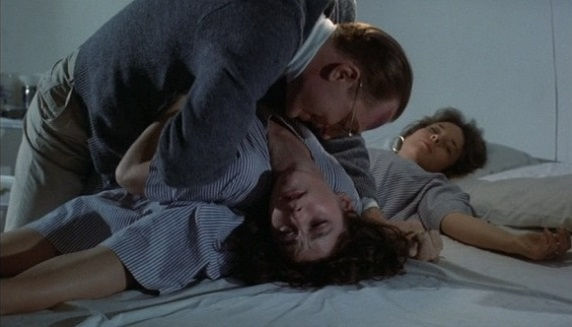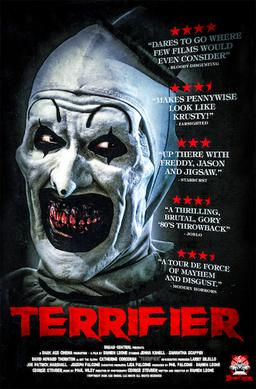Sisters (1973) review
- Jeremy Kelly
- Oct 13, 2021
- 4 min read
13. Sisters (1973)
Directed by: Brian De Palma
Produced by: Edward R. Pressman
Screenplay by: Brian De Palma, Louisa Rose
Starring: Margot Kidder, Jennifer Salt, William Finley, Charles Durning

To my knowledge, director Brian De Palma is a name that doesn’t get a ton of recognition, at least not nowadays. But he’s often cited as a leading member of the New Hollywood generation of young film directors who emerged around the mid 1960s, breaking out around the same time as the really big names like George Lucas, Francis Ford Coppola, Steven Spielberg, etc. His specialty has been sexually charged psychological horror, but he’s also directed crowd favorites like “Scarface,” “The Untouchables,” “Mission: Impossible,” and that’s just to name a few. However, one of his first critically acclaimed efforts was “Sisters,” a disturbing and largely overlooked thriller about a murder in New York City, a neighbor who witnesses it, and the harrowing back story behind it.
The neighbor in question is Grace (Jennifer Salt), a reporter who watches from her Staten Island apartment across the street as salesman Philip (Lisle Wilson) is stabbed to death. This follows a date between Philip and aspiring model/actress Danielle (Margot Kidder), who met while appearing on a “Candid Camera”-style TV show. What followed at the apartment was a quarrel between Danielle and her twin sister Dominique, who had been in a mental hospital; Philip’s hopes to smooth things over with a birthday cake resulted in Dominique killing him. Grace calls the police, but Danielle and her ex-husband Emil (William Finley) hide the body inside the pull-out sofa, leading police to dismiss her. Certain of what she saw, Grace hires private investigator Joseph Larch (Charles Durning), who provides a file on Canada’s first conjoined twins, Danielle and Dominique, now separated; while he tracks down the body, she follows the couple for answers, and gets much more than she bargained for.

So the basic setup, as well as the subtle humor throughout, is clearly meant to evoke the style of Alfred Hitchcock; the idea of a neighbor witnessing a murder is from “Rear Window,” the tracking point-of-view shots and scenes where characters are literally right on top of a dead body without realizing is utilized in “Rope,” and the murder itself, especially of someone we’re expecting is the main character, has a similar brutality as in “Psycho.” The music composed by Bernard Herrmann also has that Hitchcock vibe; this was one of the last works of Herrmann’s illustrious career. But there’s an energy that makes this movie its own creation; it’s crafted not like someone copying Hitchcock, but someone who understands what makes his films so enthralling. The split-screen technique might seem a little gimmicky, but the way the tension builds into such terrifying concepts is truly impressive. There’s something I find so scary about entering a place like a mental hospital, and then being told you can’t leave, and then having the situation devolve into this nightmare right out of “The Cabinet of Dr. Caligari.” The use of color and extreme close-up shots make this whole climax look positively hellish.
In one of her first film roles, before “Superman” and even before “Black Christmas,” Margot Kidder is a delight as Danielle, very much along the likes of Simone Simon in “Cat People,” having this innocent exterior that masks something much more troubled. However, I wish I had as much praise for Jennifer Salt as Grace; she’s not bad, but there’s something lacking in the sincerity with this role. Here’s some fun trivia, though; Kidder and Salt were roommates and friends of De Palma in the early ‘70s, and both received the script to this movie as a Christmas gift. Charles Durning, one of the premiere character actors of all-time, does a terrific job as Larch, even though he appears all too briefly, and William Finley makes for a deliciously despicable Emil. The latter also had a longtime friendship with De Palma, appearing in nine of his films, as well as a short called “Woton’s Wake” he made when he was 22. The most memorable character is probably Arlene (Catherine Gaffigan), the hospital patient who breaks into hysterics because she’s convinced that germs can be passed through phone calls; she’s only in one scene, but you won’t forget her anytime soon.

Even though this movie has all the pieces of a top-notch classic, there are things that hold it back when it comes to the story. One of Grace’s main driving points with pursuing the story without police is her belief that they ignore her testimony because Philip is a Black man; it feels unnecessary, due to the fact that they don’t even believe there’s been a murder, and I don’t even recall her mentioning it to them, unless I missed something. I also find it incredibly silly that when she finds the cake that would be a break in the case, she randomly trips and destroys it. There are also plot points and characters that are just executed randomly, some never followed up on and others that contain a confusing payoff, particularly with the ending; I’m not going to spoil it, but reportedly even Salt didn’t understand what her character’s resolution was supposed to mean. It doesn’t ruin anything; it just kind of leaves you off on a weird note where you don’t quite know what the last 92 minutes were meant to amount to.
Okay, that’s harsh, because “Sisters” is still a very engaging film, full of fairly gruesome imagery that works more because of its subtext regarding the characters’ psychology and the sheer power of suggestion. I wish the symbolism was a little more coherent in terms of the specific character arcs, but what we’re left with is still extremely engrossing. Three years later saw the release of “Carrie,” De Palma’s first box office hit, which is now looked upon as a bona fide horror classic of the decade. That story probably has more interesting ideas, but I personally prefer the way this movie gains momentum without feeling overdone; it peters out at the end, but doesn’t take too much away from the experience.
My rating: 8.5/10





Comments